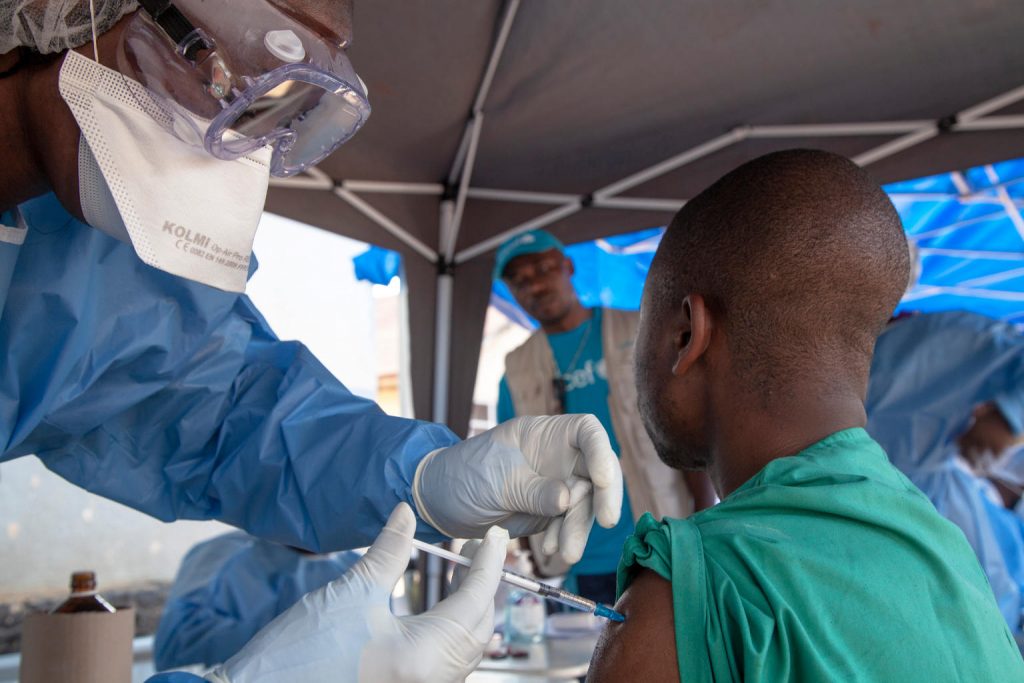Recent infectious disease outbreaks show that inadequate consideration of social, cultural, political, and religious factors in humanitarian responses has consequences for community acceptance of, and the effectiveness of, response activities. A growing number of studies have focused on the historical, social, cultural, and political determinants of vaccine acceptance, and highlighted the specificities of these dynamics during emergencies. Given the range of disease types and contexts, there is a need to understand different perspectives on vaccines and outbreaks, including: political and economic factors that determine whether and how vaccines can be effectively deployed in an emergency; health system realities closely tied to cultural, policy, and historical developments; and local systems of knowledge to identify community perceptions surrounding vaccine use. This SSHAP Practical Approaches brief can be used by health-care providers/non-governmental organisations (NGOs), national and global-level policymakers, and industry actors to gain social science inputs in vaccine deployment efforts to provide practical solutions to re-occurring challenges, including vaccine refusal.
Briefing
Tools
Social science research for vaccine deployment in epidemic outbreaks

UNICEF/UN0228950/Naftalin
On 10 August 2018, an Ebola vaccination team member (left) prepares to administer the Ebola vaccine in Beni, North Kivu, the Democratic Republic of the Congo (DRC).
Following the 1 August 2018 announcement by the Government of the Democratic Republic of the Congo (DRC) of a new Ebola Virus Disease (EVD) outbreak in North Kivu, UNICEF has mobilized its teams to help contain the spread of the disease and protect children. The impact of an outbreak on children can be far reaching. It’s known from earlier outbreaks in the DRC as well as in West Africa that children can be affected in various ways. Children can themselves be infected by the disease, but the impact goes beyond; it impacts their families and communities as children can lose their parents, care-givers and teachers. Access to basic services such as health care and education can become severely compromised. Also, children who are infected or whose relatives are, face stigmatization and social exclusion.
The Congolese Government has activated its response plan and called its partners, including UNICEF, to participate in the response. UNICEF has deployed a team to Beni for the response, including health specialists, communication specialists and a water, sanitation and hygiene specialist from the Ebola-response team in the Province of Equateur. Health, water, sanitation and hygiene and communication supplies have been sent to the affected areas including 300 laser thermometers to monitor the health conditions of people in the affected region and 2,000 kg of chlorine to treat water to help contain the spread of the disease. As at 14 August 2018, UNICEF has installed 35 chlorination points, as well as handwashing units in 45 public places and in health facilities in the affected areas of Beni and Mangina in North Kivu. UNICEF has supported the distribution of prevention posters and leaflets, and worked with communities, in public places and with local radio stations to promote safe hygiene and sanitation
Related content
Briefing
Cross-border dynamics between Burundi and Tanzania in the context of viral haemorrhagic fever outbreaks, 2025
This brief summarises key considerations regarding cross-border dynamics between Burundi and Tanzania in the context of viral haemorrhagic fever (VHF) outbreaks in Tanzania and Uganda.
Central and East Africa Hub
SSHAP
2025
Briefing
Using social and behavioural science to inform the use of vaccines during health emergencies
This brief synthesises social and behavioural science research on the use of vaccines during health emergencies in sub-Saharan Africa, including experimental vaccines undergoing clinical trials.
SSHAP
2025
Article
Hiding in plain sight: IDP’s protection strategies after closing Juba’s protection of civilian sites
This article examines how former Protection of Civilian site (PoCs) residents are staying safe and protecting themselves after the United Nations Mission in South Sudan's (UNMISS) handing over of the PoCs to the Revitalised-Transitional Government of National Unity (R-TGoNU).
Central and East Africa Hub
Global Policy
2023
Article
Sing safety: understanding South Sudanese protection strategies through song
This article argues that paying attention to music can help humanitarians understand self-protection strategies, especially as music can create space for discussion even about emotive or political topics that cannot be verbalised in other ways.
Central and East Africa Hub
Global Policy
2025


